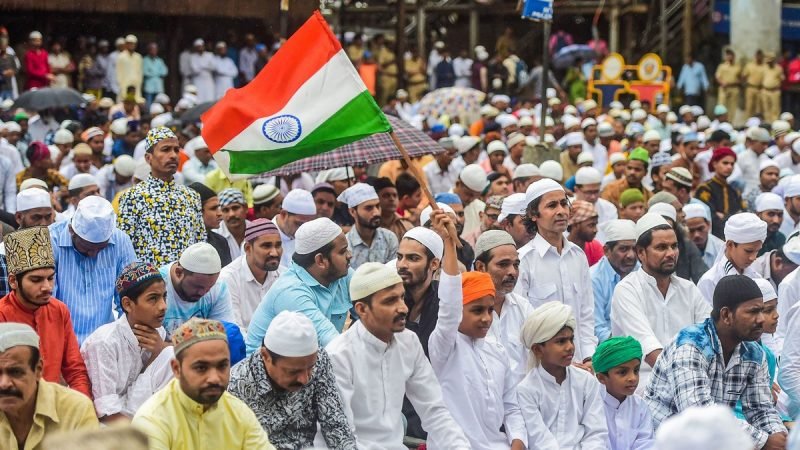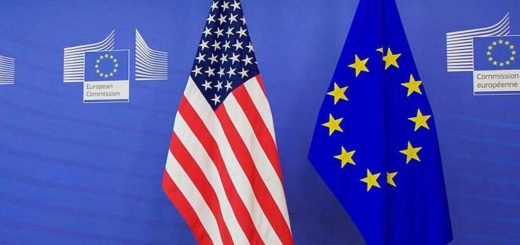Islamophobia in Europe, What Global Muslims Can Learn from India?

European politics is taking new dimensions with the recent assassination of a history teacher and the reactions that followed. The brutal beheading of Samuel Paty, aged 47, for showing cartoons of the Prophet Muhammad to his students is alarming European politics. Adding more fuel to the whole debate, the attacks in the French city of Nice and its Islamic terrorist ties have further strengthened Islamophobia in Europe. Such acts of an extremist group are most likely to affect secular-democratic Muslims though they are marginalized in the whole debate on Islamophobia. Signs are emerging that anti-Islamic politics, with its deep-rooted hate-politics in many parts of Europe, is heading for a new genocide. Indeed, reports indicate that contemporary elements of anti-Islamic politics are exported from Western Europe to other global compatriots.

It is a matter of concern that the official reactions to the killing of a teacher by a Chechen teenager are based on anti-Islamic foundations. Overall, it looks like the beginning of a new politics targeting the eight per cent Muslim population in France, but when completed, secularists and democrats across Europe will be pushed into the backyard of political ghettos. Politics in Europe suggest that anti-Islamic politics is a conscious rediscovery to build an anti-Islamic identity for Europe. For example, consider two situations. Only two years ago, in June 2018, Mamoudou Gassama, a Mali Muslim, adventurously rescued a four – year – old girl. He has been celebrated as a hero and bestowed with numerous gifts, including French citizenship. Three years earlier, in 2015, another Mali Muslim, Lassana Bathily, risked his life to save hundreds of civilians from Islamic extremists.
Good Muslim versus Wicked Community
In both cases, the good Samaritans were Muslims, but the mercy of Islam or Islamic ethics was never emphasized. Instead, European media celebrated the personal goodness of these two refugees in France. But from the Charlie Hebdo issue to the Nice and Avignon issue, what is questioned is Islamic terrorism. Of course, the fact remains that extremist groups have an influence among immigrant Muslims in European countries, including France. But the politics that exaggerate and generalize it rejects the tolerance claims that Europe celebrates. The question, whether this kind of anti-Islamic politics is unique to Europe or post-9/11 world order, points to a flaw in the assessment of anti-minority politics around the world.
Anour Majeed’s famous book “We Are All Moors” (2010), offers an exciting study about European social history and the invention of the politics of hatred. As for Majeed, anti-Islamic ideology has been vital in Europe since the Crusades, but over time it has turned into anti-Semitism. But again, he observes, anti-Semitism is deteriorating instead turning into anti-Muslim politics.

The chanting of the slogan “Allahu Akbar” during the attack in France has been cited as the most significant evidence of Islamic extremism. This is true because extremists, in many cases, sacrifice the freedom and feelings of other co-religionists for the beliefs they believe to be the best. The most significant proof for this dilemma is the fact that 2.25 billion Muslims in different parts of the world are paying respect through Allahu Akbar, but they get seldom noticed. That is, the millions of soothing throats and hands behind Allahu Akbar are unrecognized, instead of small numbers of terrorist slogans are always heard and projected.
This is not the identity of France alone; most of the European countries, such as Ukraine, Spain, Britain, Russia, Italy, Netherlands, Denmark are expressing various forms of Islamophobia for a decade. According to the international news media, anti-Muslim sentiment, not anti-terrorism, is gaining strength throughout Western Europe. As per the report on The New York Times, dated 6th March 2020 “in 2018 alone, France saw an increase of 52 per cent of Islamophobic incidents; in Austria, there was a rise of approximately 74 per cent, with 540 cases”.
Historically speaking, since the 1980s, Muslims from Morocco, Pakistan, and Turkey have been portrayed as enemies destroying the social atmosphere of Europe. Throughout the 1990s and 2000s, it continues. There are two main reasons for this. First, many European leaders could not come out of the hallucination of the white mans’ burden. For example, Nicolas Sarkozy made the ‘infamous discovery that “the tragedy of Africa is that the African has not fully entered into history”. Following Sarkozy, Macron alleged in 2017 that ‘Africans have no culture because they breed 7-8 times’. Second, Europe is trying to sideline its 20-25 million Muslims living in 28 European Union nations and place the blame for all its problems on Muslims. That means Europe fails to learn the lessons of coexistence.

Why Europe fails to manage Muslims?
The fundamental problem is that it is only in the last three decades that the conditions for living in a plural society have emerged in Europe. Before that, they were sending the generosity and tolerance of the European majority into the world as a commodity. This is why a small section of Muslims community is becoming a threat to those who claim the superiority of Europe under the magical word of multi-culturalism and constitutional tolerance.
These issues are not just European problems. Look at America. The United States, which claims that it stands for democracy, has subverted the Muslim world order and created terrorists in defiance of all manners. For another example, take China. If the news is to be believed, the world’s most persecuted Muslims today are in Xinjiang. Chinese Muslims are forced to live with their heads bowed in a world order where thousands of mosques are demolished, and possession of the Koran amounts to a crime. Similarly, note the plight of Rohingyan Muslims in Burma and the persecution of Muslims in Sri Lanka. That is, not only that Muslims are not safe in the many non-Islamic countries, but they also face a lot of persecution in the name of Islamic identity.

India’s Options
It is in this context that India gives more hope to the Muslims. About 15 per cent of the population, or 200 million Muslims, are almost undoubtedly safe under India’s secular democracy. This does not mean that there are no attacks on Muslims or anti-Muslim politics is not practised in India. The new Citizenship Amendment Act and the Ayodhya Judgment create anxiety to a section of Muslims. But anti-Muslim sentiments, which has spread to Europe, the United States and China in the last three decades does not exist in India, which has a 1,200 year-long history of coexistence. Therefore, the global world of Muslims needs to learn from India that mutual understanding, and historical ties are essential for long-term coexistence rather than tolerance expressed for political purposes.


















